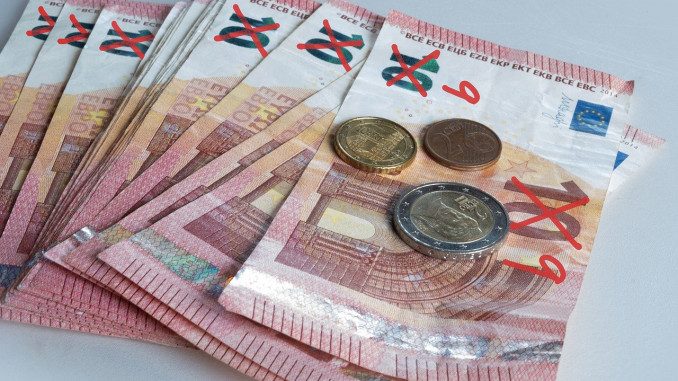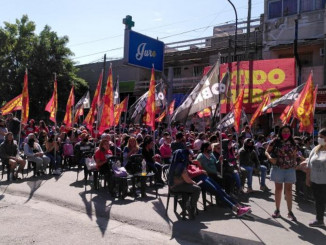
September 5, 2022, Editorial of the Workplace Newsletters of the Etincelle fraction of the NPA, Translated from French
The French government, and some of the press, is congratulating itself on the fact that salaries have increased: +3% last year for the basic monthly salary in the private sector, +3.5% for civil servants, +4% for pensions and social benefits. Except that with inflation already reaching 6.1% over the same year, it is actually a big pay cut!
First inflation hit electricity, gas, and food, and now price increases are affecting all products. This summer, hotel rates have risen by 17% and by 14% in vacation hubs. With back to school, it’s now affecting school supplies, with +18% on notebooks, and +20% on paper.
Prices are rising, dividends too
The government and prominent economists are suggesting that wages are responsible for inflation. The Governor of the Bank of France, François Villeroy de Galhau, has been lecturing those who would be tempted to make demands, telling them “everyone would lose out if wages were to rise.” But prices did not wait for wages to take off!
With these price increases, employers are making record profits. For example, Stellantis (the result of a merger between two auto companies, PSA and Fiat-Chrysler), has made 8 billion euros in profits in the first half of 2022, up 34% from 2021, even though sales have fallen due to a shortage of electronic components. At Arkema, France’s largest chemical company, profits jumped 58% in the first half of 2022! In the United States, the Economic Policy Institute estimates that 54% of the increase in prices between the end of 2020 and the end of 2021 has fueled profits. The “end of abundance and recklessness” that President Macron is threatening us with is not for everyone. In the second quarter of 2022, large companies again broke records for dividends paid to their shareholders, in France and around the world.
Cents for some, billions for others
Faced with the impoverishment of the working world, the government is content with small measures, which it hopes will defuse the isolated but numerous strikes. The government would like to calm us down with an energy voucher, a so-called tariff shield on gas and electricity, a subsidy of 18 and now 30 cents on fuel. The government has added in a food voucher of 100 euros per household, and 50 euros per child for the beneficiaries of guaranteed minimum income. With the current prices, this is not even enough to fill a shopping cart! And these measures do not cost a penny to an employer who is getting indecently fat, to the point that Bruno Le Maire, the Minister of the Economy, announced that he will “do the accounting at the end of the year [to see] what the big companies [will have] put on the table to protect our compatriots against inflation.” Blah, blah, blah. He says this because he is announcing new tax cuts for companies: so many more billions that will end up in dividends.
The urgency to raise wages
Low wages and unsustainable working conditions explains the shortage of bus drivers, care workers, teachers and others. But for the bosses and the state, as long as profits are coming in, why hire? They’ll wake up when our collective anger and reaction puts an end to these lousy wages and increased workloads!
We need higher wages and a dignified life, and it is up to all of us in the working world to make this happen. The British railway workers have set an example this summer by going on a massive strike, encouraging other sectors to join them (dockers, postal workers, garbage collectors and others). And these struggles will continue into September.
In France, on September 22, union leaderships are calling for mobilization in the health sector, and in all sectors on September 29. This first warning must be massive, but above all, let’s discuss and organize ourselves to strike together as hard as possible.




